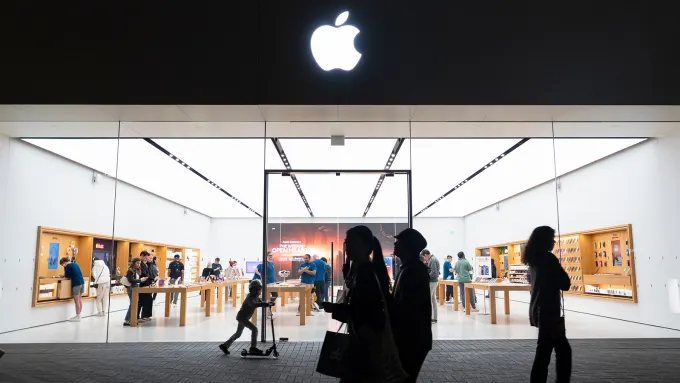US President Donald Trump declared during his “Liberation Day” address that “jobs and factories will return to the United States.”
With the implementation of unprecedented tariffs globally, American consumers could face significant price hikes on products ranging from clothing to electronics. A prominent tech analyst has warned that the price of an Apple iPhone could soar to around $3,500 if produced in the US.
The president and his economic officials have promised that the tariffs will lead to the “reshoring” of numerous manufacturing jobs to the US, ultimately employing millions of Americans.
However, Dan Ives, global head of technology research at financial services firm Wedbush Securities, has dismissed the notion as a “fictional tale” to CNN’s Erin Burnett.
Ives explained that producing US-made iPhones would cost over three times their current price of around $1,000 because replicating the highly complex production ecosystem in Asia would be necessary.
He emphasized that building a supply chain in the US, with fabrication plants in West Virginia and New Jersey, would result in iPhones costing $3,500. Fabrication plants are high-tech manufacturing facilities where computer chips powering electronic devices are typically produced.
Even with this significant investment of approximately $30 billion and a three-year timeline, Apple would only be able to move 10% of its supply chain to the US initially, according to Ives, who spoke to Burnett on Monday. CNN has reached out to Apple for comment.
The shift in the manufacturing and assembly of smartphone parts to Asia occurred decades ago as American companies primarily focused on software development and product design, which generate higher profit margins. This move has contributed to Apple’s status as one of the world’s most valuable companies and its dominance as a smartphone maker.
Since Trump’s inauguration in late January, Apple’s shares have plummeted by approximately 25% due to concerns about the potential impact of tariffs on its extensive supply chain, which heavily relies on China and Taiwan. Notably, about 90% of iPhones are assembled in China.
He explained that this is precisely why Apple’s stock has experienced such a decline. He emphasized that no company is more directly affected by this tariff-driven storm than Cupertino and Apple. He likened the situation to an economic Armageddon, particularly for the tech industry.
The chips that power iPhones are primarily manufactured in Taiwan, while its screen panels are sourced from South Korean companies. Some other components are produced in China, and the final assembly process predominantly takes place in the country.
In response to these challenges, Apple announced in February that it would invest $500 billion in the United States over the next four years. This strategic move aims to expand production outside China and mitigate the impact of Trump’s tariffs on the country.
Apple CEO Tim Cook addressed the Apple Worldwide Developers Conference (WWDC) on June 10, 2024, in Cupertino, California.
Tech analysts predict that iPhone prices will likely increase, even if supply chain disruptions persist. According to a research note cited by Reuters, Rosenblatt Securities, a New York-based investment bank, suggests that iPhones could be 43% more expensive if Apple passes on the entire cost of higher tariffs to consumers.
Neil Shah, vice president of research at Counterpoint Research, estimates that iPhones could cost approximately 30% more, but this figure may vary depending on the country of production.
Apple has previously been actively diversifying its production bases from China to India and Brazil. To maintain cost control for its phones, Apple may consider shifting production of key components to countries with lower tariff barriers. For instance, India faces 26% tariffs, while Brazil has been subject to 10%. While Trump’s tariffs on Brazil are the lowest among major iPhone manufacturing centers, Shah acknowledges that Brazil’s production capacity may not be sufficient to fill the void left by China.

















